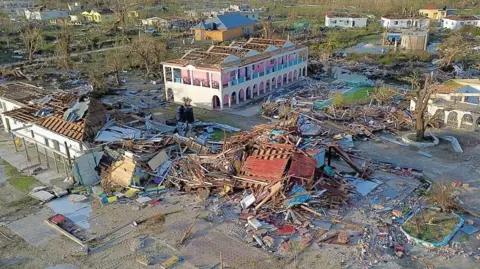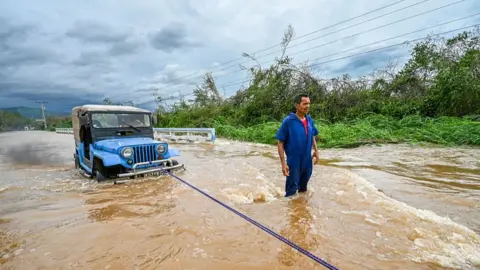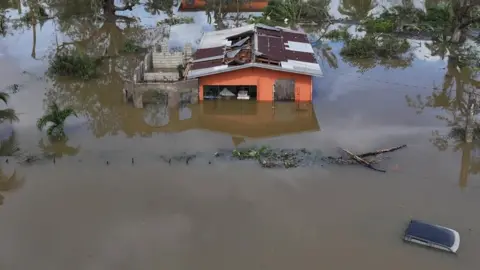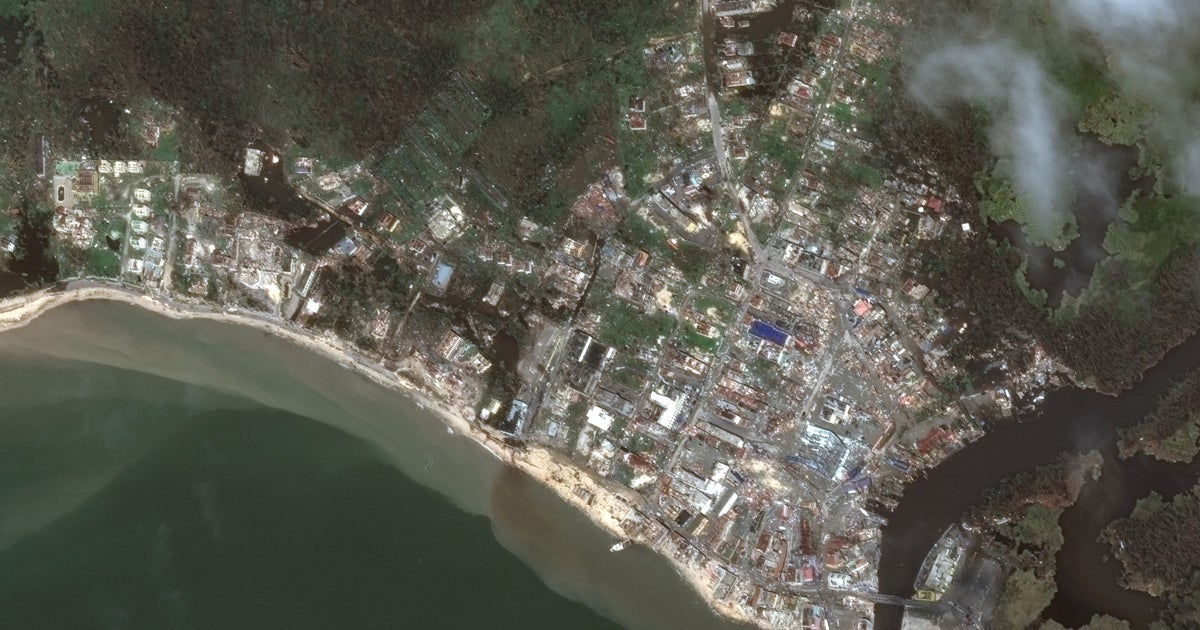Nick Davis,Mandeville, Jamaica and Rachel Hagan

 Getty Images
Getty Images
In Jamaica, the impact was most severe in the southwestern parish of St Elizabeth.
The scale of devastation left by Hurricane Melissa is becoming clear after the record-setting storm tore through Jamaica, Haiti and Cuba, leaving at least 32 people dead.
Although downgraded from a Category 5 to a Category 1 storm, Melissa gathered speed as it swept through the Bahamas on Thursday and is expected to make landfall in Bermuda later.
The strongest storm to strike the Caribbean island in modern history, the hurricane sustained winds of 298 km/h (185 mph) at its peak - stronger than Hurricane Katrina, which devastated New Orleans in 2005, killing 1,392 people.
The US National Hurricane Centre (NHC) reported sustained winds of 165km/h at 09:00 GMT on Thursday.

 AFP via Getty Images
AFP via Getty Images
Cuba's second-largest city, Santiago de Cuba, was badly hit
It warned of possible coastal flooding as the storm accelerated northeastward.
Authorities in the Bahamas have since lifted hurricane warnings for the central and southern islands, as well as for the Turks and Caicos.
The country's Minister of State for Disaster Risk Management, Leon Lundy, urged residents to remain vigilant, saying: "Even a weakened hurricane retains the capacity to bring serious devastation."
Nearly 1,500 people were evacuated from vulnerable areas in what officials described as one of the largest operations in Bahamian history.
While flooding has disrupted parts of the archipelago, the ministry of tourism said the majority of the country - including Nassau, Freeport, Eleuthera and the Abacos - remained largely unaffected and open to visitors.
Across the wider Caribbean, Melissa's powerful winds have torn apart homes and buildings, uprooted trees and left tens of thousands without power.
In Cuba, residents of the country's second-largest city Santiago de Cuba worked with machetes to clear streets buried in debris. President Miguel Díaz-Canel said the hurricane had caused "considerable damage" but did not provide a casualty figure.
In Jamaica, the impact was most severe in the southwestern parish of St Elizabeth, where knee-deep mud and washed-out bridges left towns such as Black River cut off. On the road west out of the capital Kingston we saw minimal damage - some structures torn down, trees strewn across roads and gardens.

 Reuters
Reuters
St Elizabeth is covered in knee-deep mud and with flooded roads
But once we arrived in central Jamaica we started to see how severely the island had been hit. The town of Mandeville has been, for want of a better word, flattened. A petrol station lost its roof and most of its pumps.
Dana Malcolm of the Jamaica Observer described "very, very slow progress" along roads still blocked by landslides when reaching St Elizabeth. She told the BBC: "I was standing in what used to be main street yesterday and I was knee-deep in mud where the road should have been."
Communication across Jamaica has been all but severed, with power lines and mobile networks down in much of the southwest. Many families have spent days unable to contact relatives in the hardest-hit parishes.
In Black River, the New York Times reported, the relative of one victim walked 15 miles (24km) to the police station to report their loved one dead.
Desmond McKenzie, the minister of local government, shared the news that "amidst all this, a baby was safely delivered under emergency conditions. So there is... a baby Melissa".
Haiti, already mired in gang violence and humanitarian crisis, suffered at least 23 deaths - 10 of them children - largely due to flooding after days of relentless rain, despite the country avoiding a direct hit.
The storm is also responsible for at least eight deaths in Jamaica and one in the Dominican Republic, officials have said.
The NHC said floodwaters across the Bahamas were expected to subside by Thursday, though conditions in Cuba, Jamaica and Hispaniola would remain hazardous for several days.

 3 hours ago
2
3 hours ago
2










 English (US) ·
English (US) ·